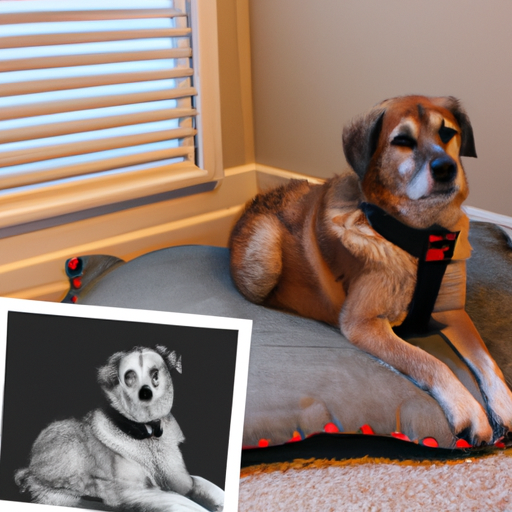Understanding Dog Grief
You may have heard that dogs, like humans, experience grief. This is true. Dogs form deep emotional bonds with their human companions and with other animals in their lives. When a beloved person or pet dies, dogs may show signs of grief that are similar to human grief. They may show a loss of appetite, changes in sleep patterns, and a loss of interest in their favorite activities.
In order to help your dog through this difficult time, you need to understand the process of canine grieving. It’s not the same as human grief, but there are similarities.
Duration Of Grief In Dogs
The length of time a dog grieves varies greatly. It can be as short as a few days or as long as several months.
Factors that can influence the duration of a dog’s grief include:
- The depth of the bond between the dog and the deceased
- The dog’s individual personality
- The dog’s age and health
- The way the loss is handled by the people in the dog’s life
It’s important to remember that, just like people, every dog grieves in its own way and in its own time.
Signs Your Dog Is Grieving
Here are some common signs that your dog may be grieving:
- Loss of appetite
- Changes in sleep patterns
- Loss of interest in activities
- Increased clinginess or need for attention
| Sign | Explanation |
|---|---|
| Loss of appetite | Your dog may eat less or even refuse food |
| Changes in sleep | Your dog might sleep more or less than usual |
| Loss of interest | Your dog might not want to play or go for walks |
| Increased need for attention | Your dog might become more clingy or needy |
How To Help Your Grieving Dog
Here are some ways you can help your dog through its grieving process:
- Keep routines consistent: Dogs thrive on routine. Try to keep your dog’s daily schedule as consistent as possible during this difficult time.
- Provide plenty of physical contact: Many dogs find physical contact comforting. Spend time petting your dog, brushing its fur, or simply sitting with it.
- Encourage exercise: Regular exercise can help alleviate some of the sadness your dog may be feeling.
- Consider a new companion: If your dog has lost a canine companion, you might consider bringing a new dog into your home. However, be sure to consider your dog’s age, health, and personality before making this decision.
FAQs
Q: Do all dogs grieve?
A: Not all dogs show obvious signs of grief, but most dogs will experience some changes in behavior after the loss of a companion.
Q: How long does dog grief last?
A: The length of the grieving process can vary widely from dog to dog. It can last anywhere from a few days to several months.
Q: Can a dog die from grief?
A: While it’s rare, it’s possible for a dog to become seriously ill from the stress and sadness of grief. If your dog is showing severe signs of grief, such as refusing to eat or drink, you should seek veterinary care immediately.
Q: How can I help my grieving dog?
A: Providing a consistent routine, plenty of physical contact, regular exercise, and possibly a new companion can all help a grieving dog.



